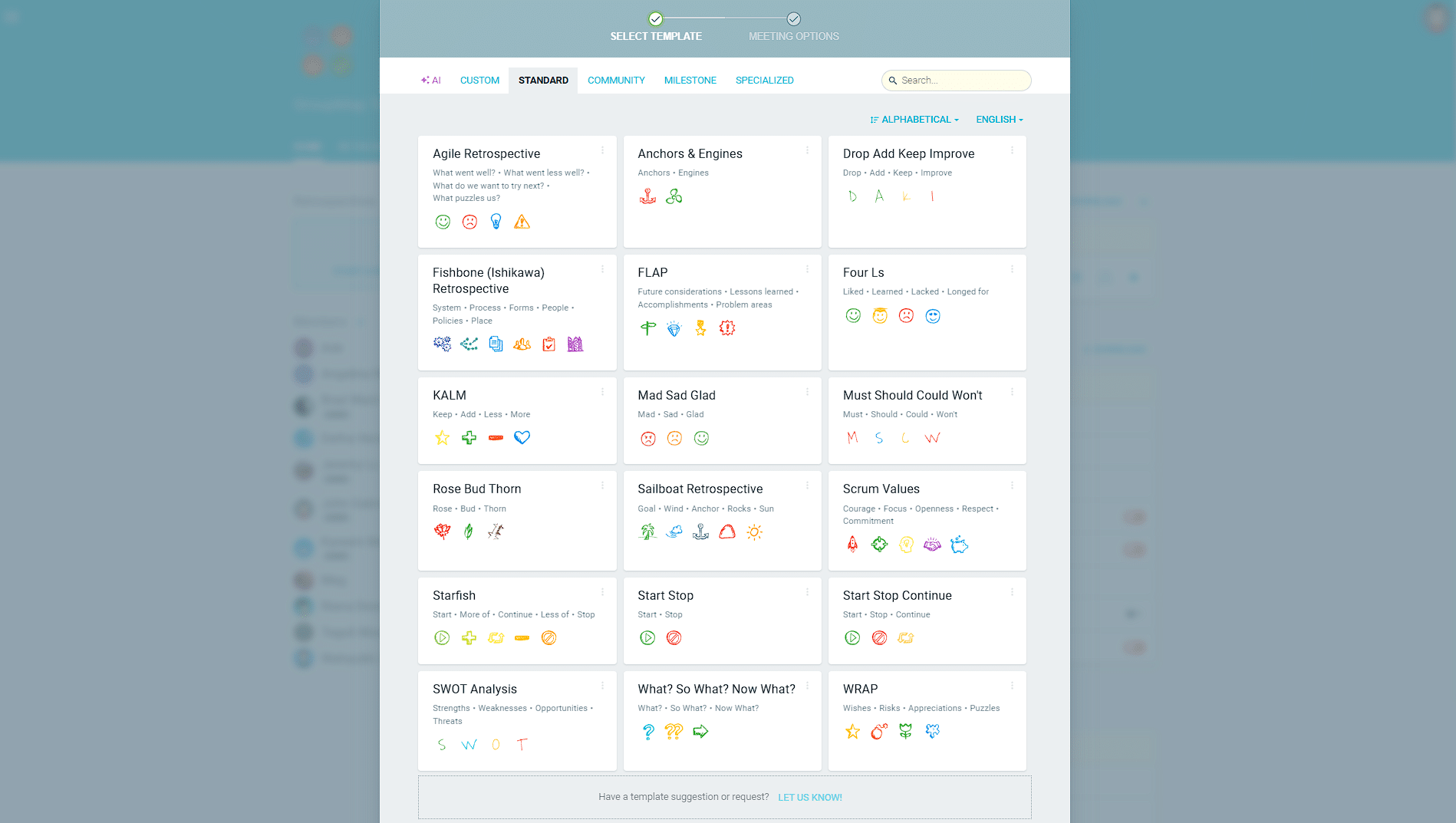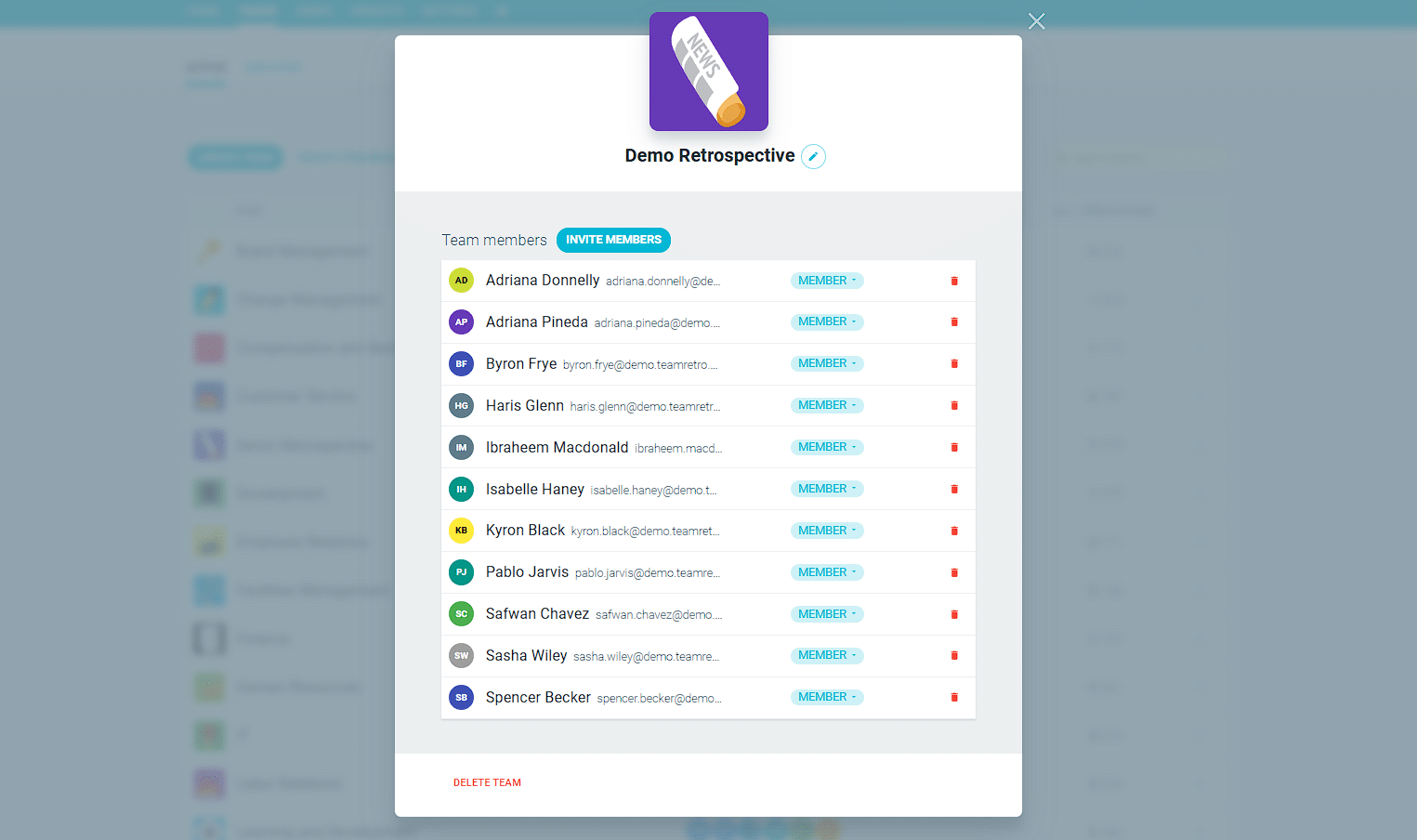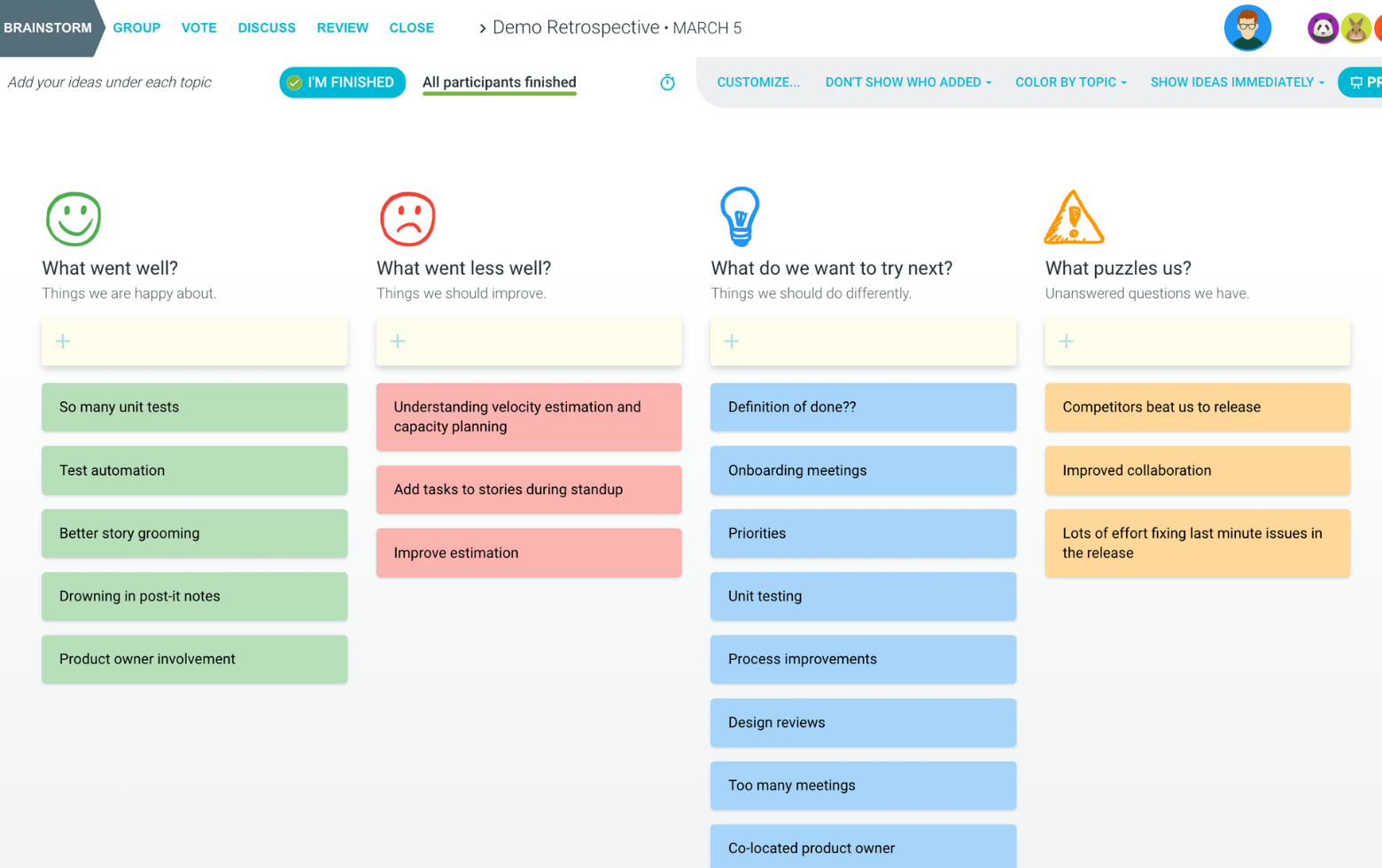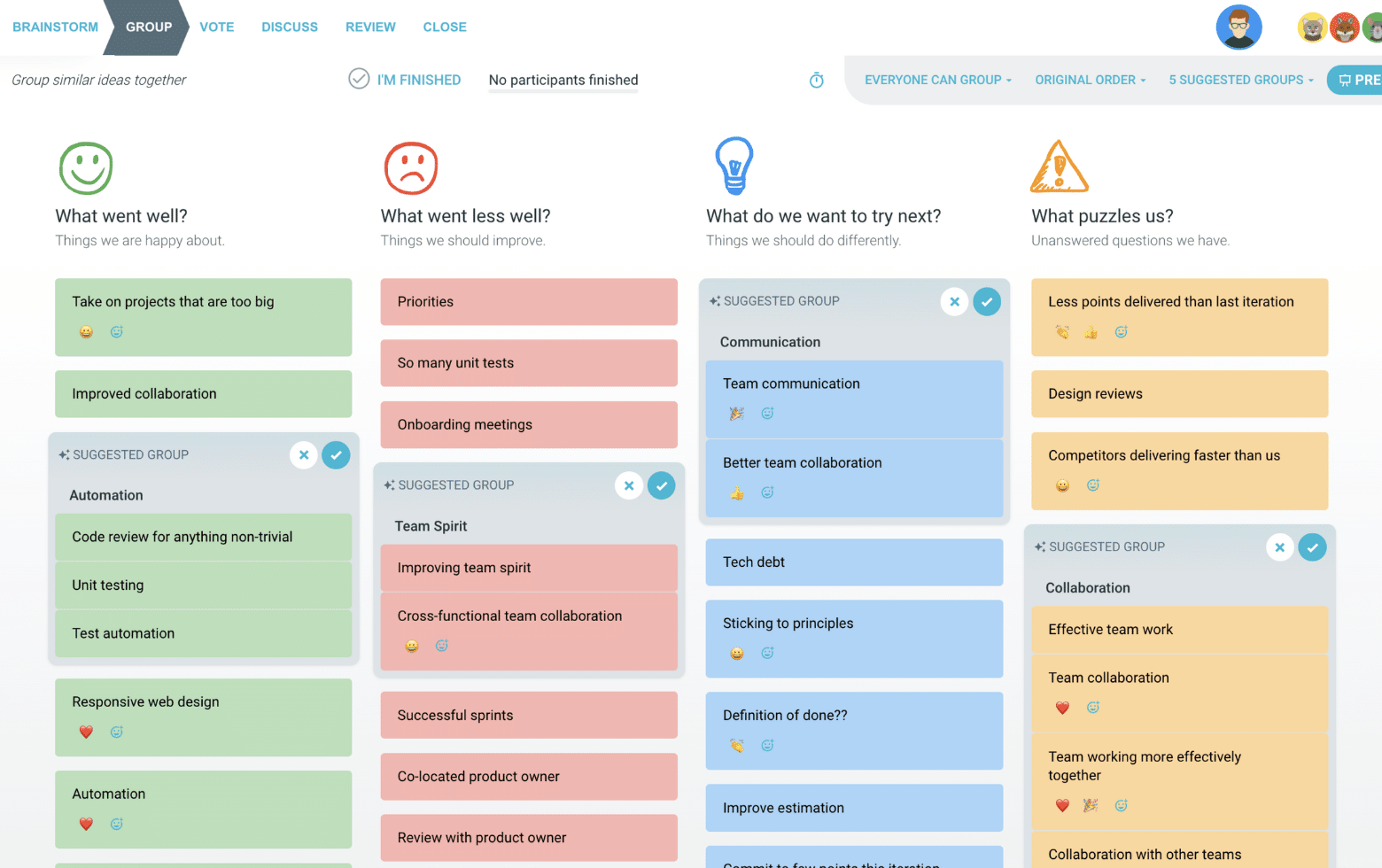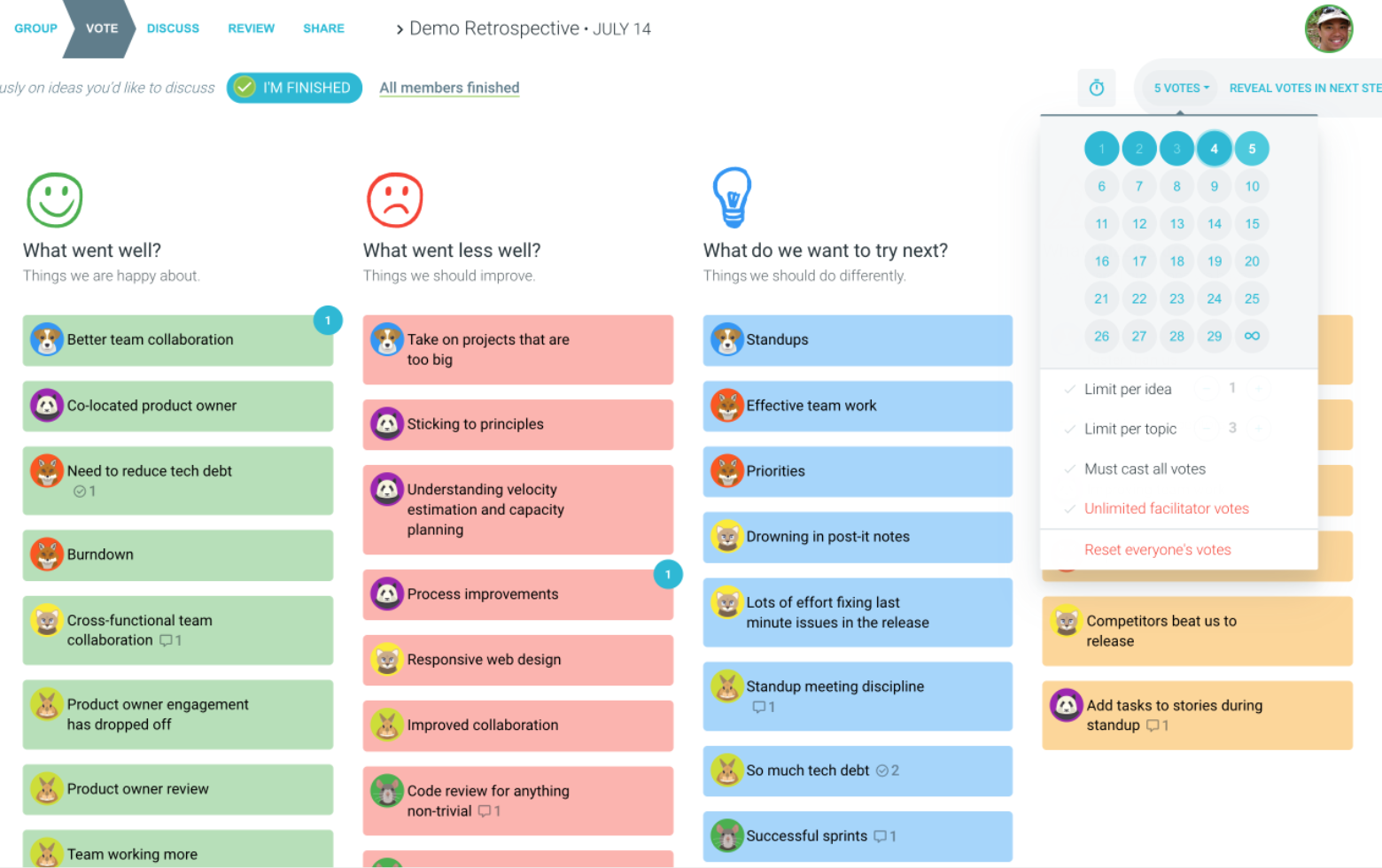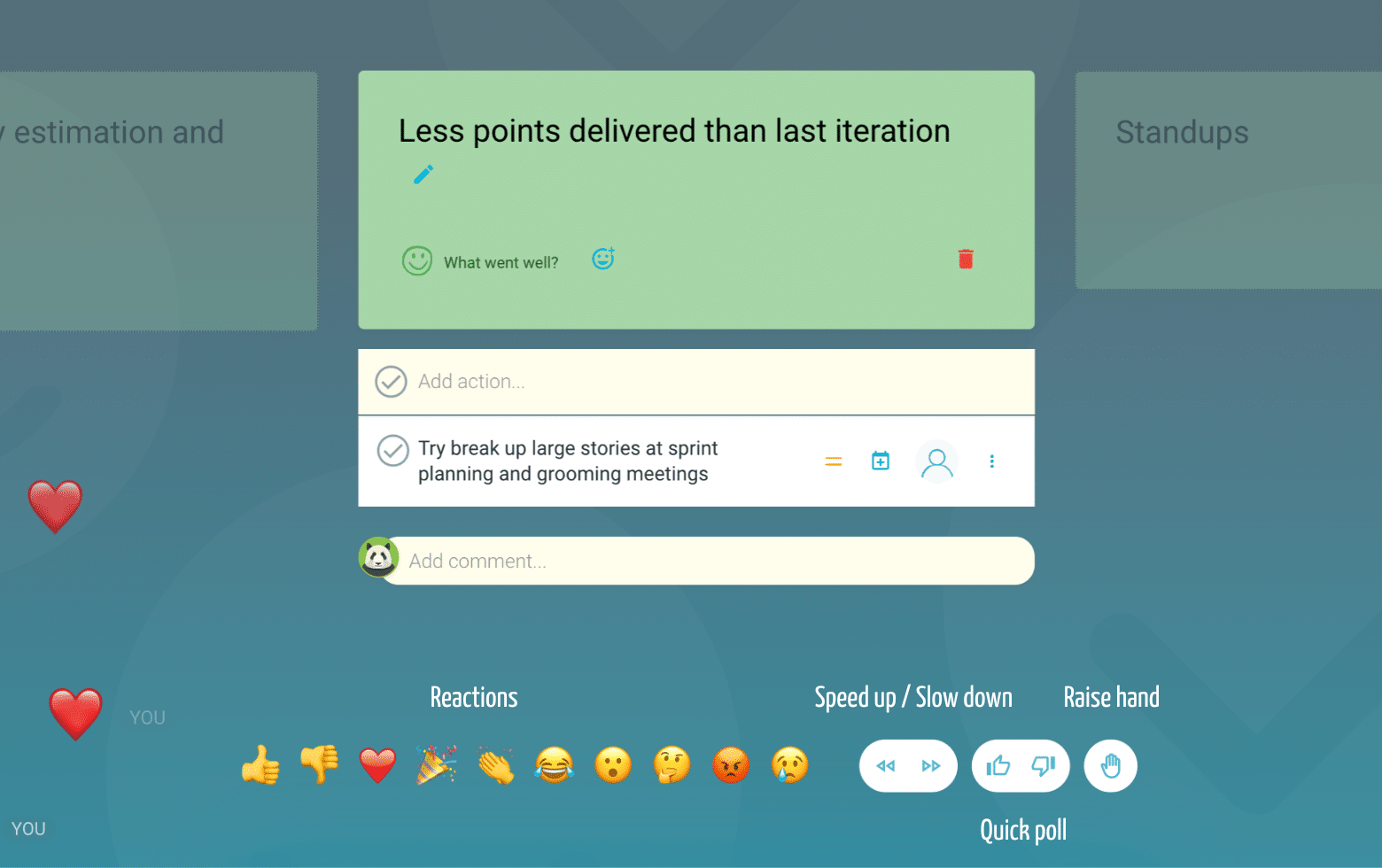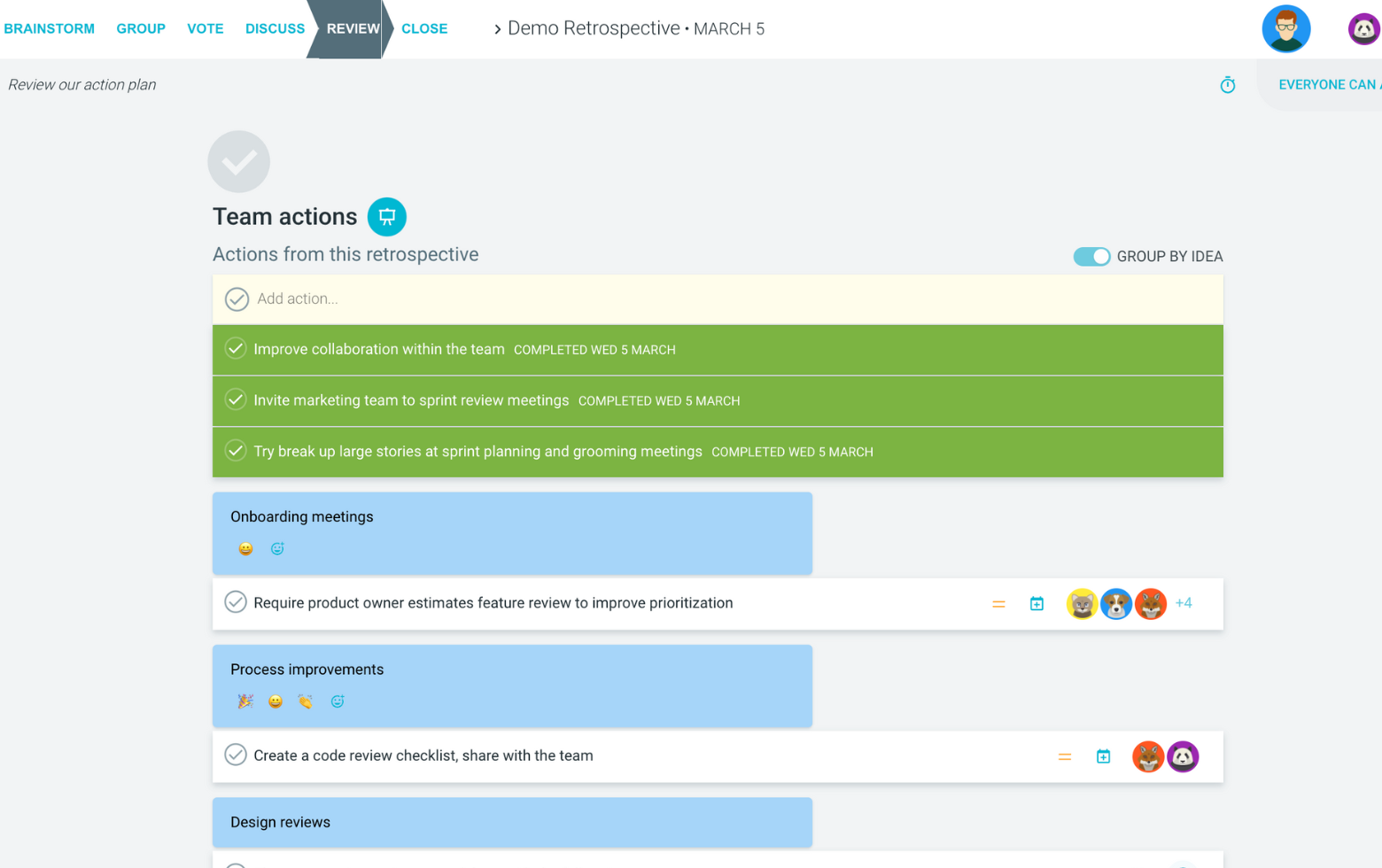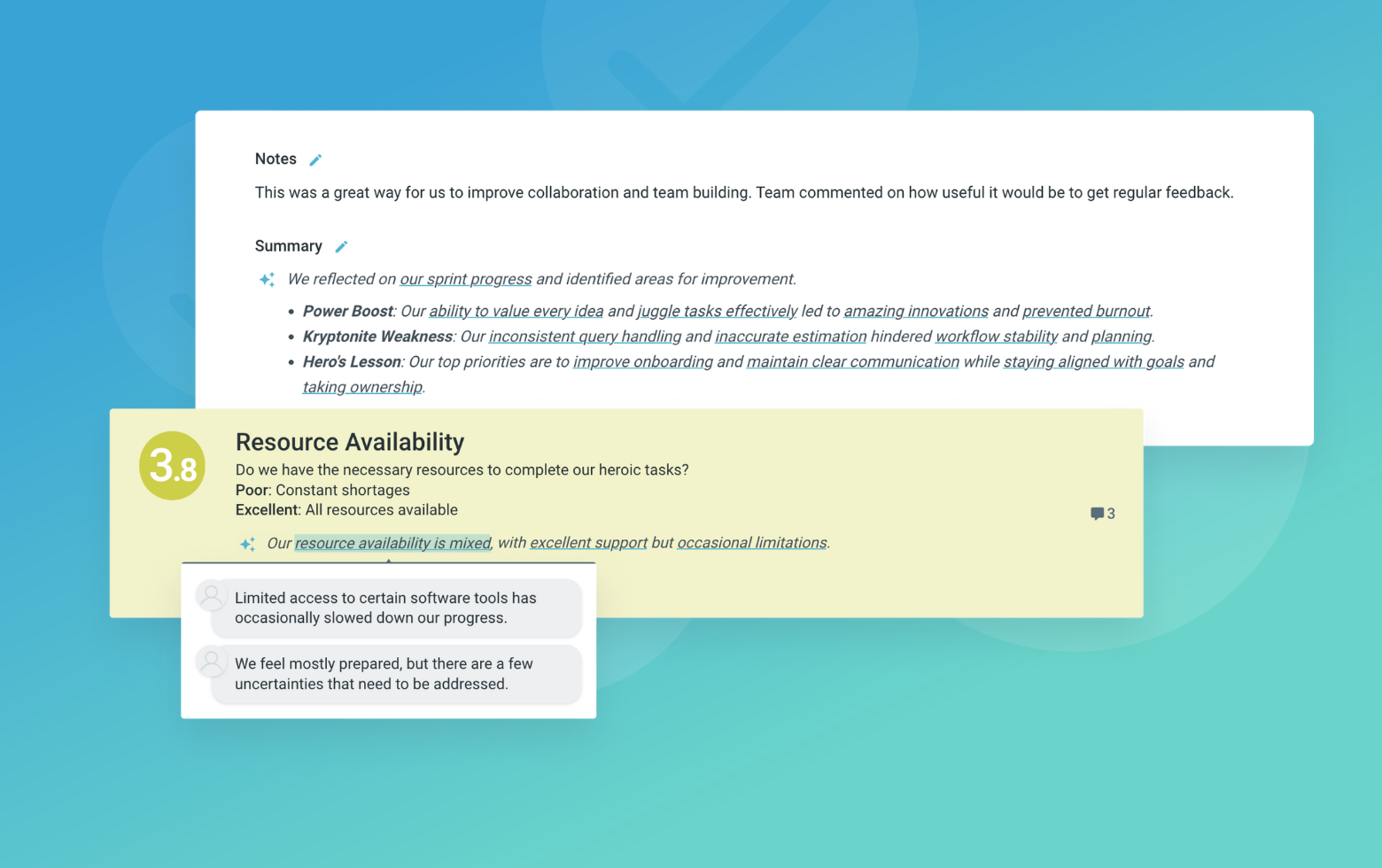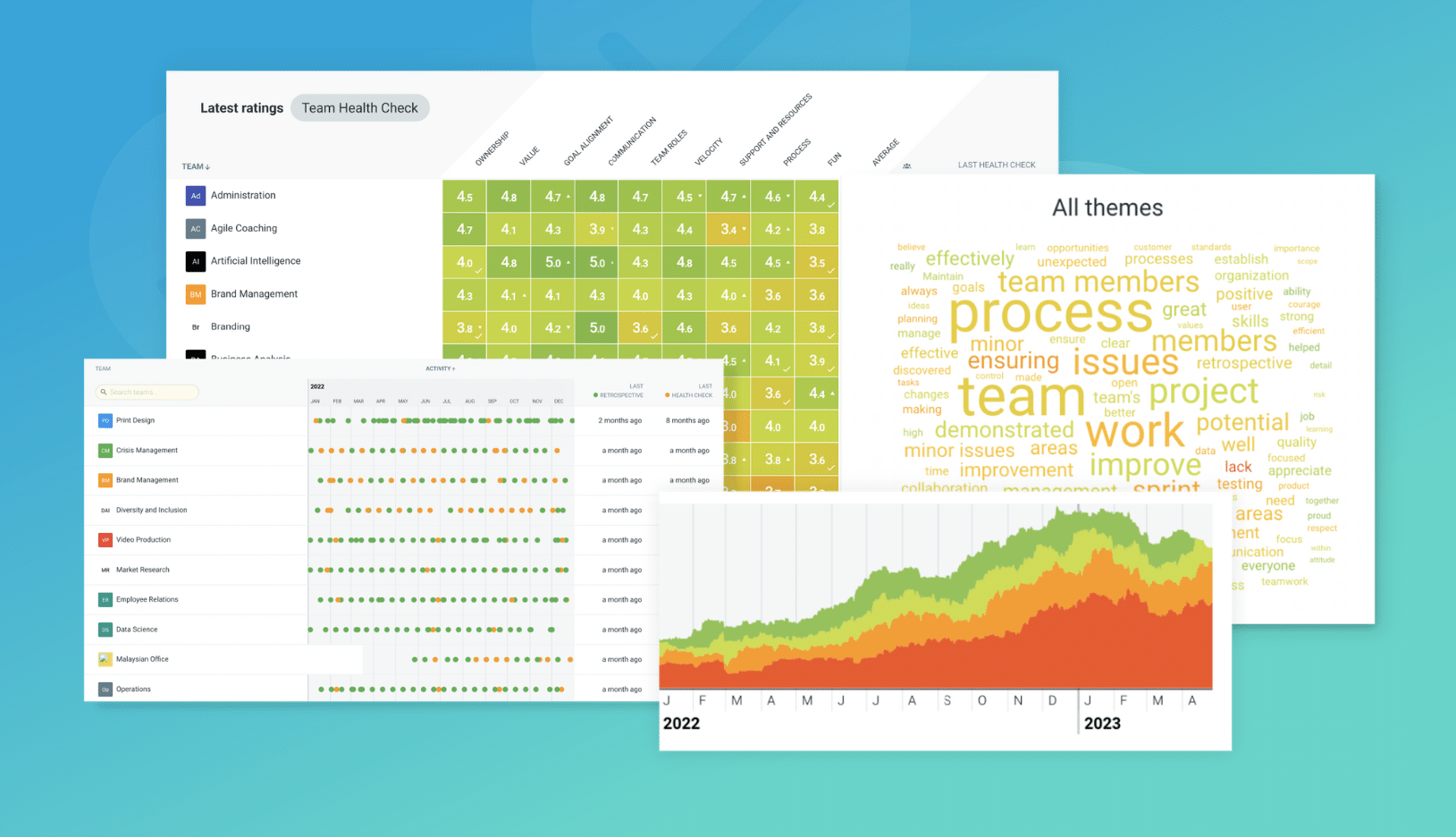What is the PMI futurespective?
The PMI Futurespective is a planning tool designed to examine a topic from multiple perspectives. Participants define the positives (Plus) and negatives (Minus) along with what they find curious (Interesting) about it.
The PMI approach to problem-solving was developed by Edward de Bono. It aims to encourage people to think about a problem in a creative, non-traditional way. De Bono felt that one problem with traditional thinking was that people tended to quickly form an opinion, then focus the rest of their energy on backing it up.
The PMI addresses this by asking everyone to consider the same topic from new perspectives. As such, participants show their intelligence with the range of their input, rather than how well they defend an opinion.
With this in mind, the PMI Futurespective is a very useful tool for agile teams because it forces a broadening view of the project to be considered and they cannot dismiss the variety of inputs that they themselves have put together.
PMI futurespective format
Plus
What are the positive aspects? What will make us feel proud? What will make us feel good? What will we celebrate? What will we learn? What will be the best thing about the project?
Minus
What are the negative aspects? What don’t we like? What makes us feel bad? What do we hope never happens?
Interesting
What is unknown or makes us curious? What might surprise us? What don’t we quite understand?
Take for example the introduction of a new continuous deployment project. The PMI futurspective would allow the team to highlight the positives (such as speed of releasing new features and automation), the minuses (Change of process and initial cost), and what is interesting (improvement in velocity or need for team collaboration).
Suggested icebreaker questions for the PMI futurespective
- Think of the next holiday you want to take and PMI it! What are the plus, minus and interesting aspects of your proposed destination?
- What do you find easier to identify about a situation; the pluses, the minuses or the interesting?
- Imagine you’re at your retirement party. What might would you want to say as the positives, negatives and interesting aspects of your career in your speech?
Futurespective Rehearsal
Let’s say there has been a proposed project to build an escape room in your spare office. Define the plus, minus and interesting aspects of the this proposal.
With the data and perspective gathered, how do people now feel about creating this escape room?
Ideas and tips for your PMI futurespective
- Trying to predict what will happen in the future may not be everyone’s cup of tea. Reassure participants there are no wrong answers.
- Encourage participants to draw on their experience from other projects and their lived experiences to fill in the futurespective template.
- Try setting up some ground rules for the futurespective such as creating team agreements.
- Get your project off on the right foot. Consider using the futurespective to define your team’s Definition of Done.
- Allow participants to brainstorm anonymously to help them feel safe when adding their thoughts to the futurespective. People are more likely to engage when they feel they will not be judged.
- Ben Linders recommends limiting the number of action items coming out of a futurespective to just the few vital ones needed to get started. Further actions will be shaped when the team meets for their regular retrospective.
How to run a PMI futurespective in TeamRetro
Start Your Session in a Click
Log into TeamRetro and choose your template. Customise questions and the workflow to create your perfect retro for your team.
Create Your Team Easily – No Separate Accounts Needed
Brainstorm Individually – Free From Bias
Smart Grouping for Faster Insights
Fair, Flexible, and Fast Voting
Engage, React, and Capture Key Insights
Walk your team through ideas one by one with Presentation Mode. Stay in sync, spark real-time discussions, and capture feedback with comments, live reactions, and polls—all in one place.
Turn Ideas Into Action
Propose next steps with team buy-in, get AI-powered action suggestions, and keep everything in one place. Committed actions sync to your personal dashboard and integrate with your workflow tools—keeping you on track.
Save, Share, and Stay on Track
Get quick AI-powered summaries, add facilitator notes, and store retrospectives in your library for easy access. Schedule your next session and track published actions to keep your team accountable at the next retro.
Turn Team Data into Actionable Insights
Uncover trends, common themes, and key engagement metrics at a glance. Track sentiment shifts, analyze conversations, and monitor completed actions to drive continuous improvement.
